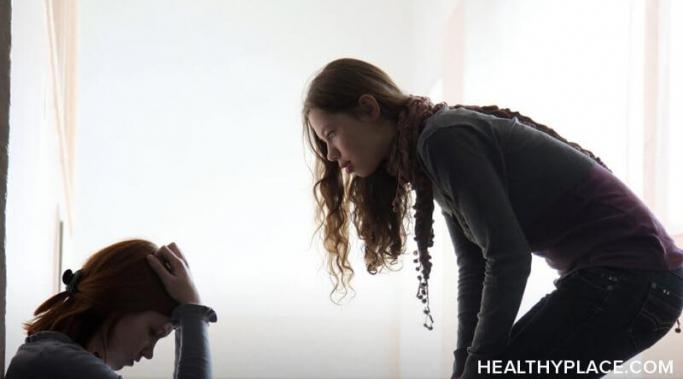It can be hard to find someone to talk to about your depression yet it is one of the first pieces of advice people give. Others tell you to find someone to talk to. That someone could be a friend, a family member, or a professional therapist. Whoever it is, the important thing is that you have someone to talk to about your depression. But sometimes, for whatever reason, we have no one.
Coping with Depression
Depression relapse triggers come at unexpected times. We need to have quick and simple methods prepared in order to cope with these triggers in a healthy way. When I find myself suddenly faced with a depression relapse trigger, I use the following methods to help me cope.
It's difficult to prove your depression to others because mental illness is an invisible force. The suffering it causes is not physical in the same way that the suffering caused by a broken bone is physical. Even a relatively common mental illness like depression often goes unseen. This invisibility can make us feel helpless in proving to others that our depression is real.
Many people may not realize that depression has physical symptoms. When extra stress is added to our lives, we may be more likely to see manifestations of the physical symptoms of our depression. What are some of the physical symptoms we may experience due to depression? What, if anything, can we do about stress and its effect on the physical symptoms of depression?
Depression-caused anger is often present in depression, but there are daily activities we can do to lessen the anger, help us relax and feel more at peace. I try to do all of these activities each day or at least most days. None of them take much time. I'd like to share the activities that help me lessen the depression-caused anger I experience.
Constructive criticism and depression: Many of us with depression tend to be sensitive and may find it difficult to accept constructive criticism. There are times, however, when we need to hear some constructive feedback from people who love us and have our best interests in mind.
While we likely won't experience all the symptoms of depression, we will certainly experience some recurring symptoms; therefore, we will need a plan for coping with these symptoms of depression. What are some recurring depression symptoms to be on the lookout for? How can we build coping skills to help us navigate through these hard times?
Having depression can sometimes lead to developing negative habits as we try to cope. Often things that aren't necessarily wise or healthy feel good at the moment. Sometimes it's easier to do what is comfortable rather than that which requires work and sacrifice. Also, depression drains us of our energy, thus making it difficult to take even that first step towards building healthier habits. Does this mean we're stuck? No, we're not; we just need to identify our negative habits and work toward changing them into more positive coping skills.
Have you ever noticed how depression can make us feel alone, even when we're surrounded by people? Sometimes it doesn't even matter if the people around us are our closest friends or family members. We may even be talking and laughing; we appear to be having fun, yet, on the inside, our depression has us feeling completely alone. How do we cope when this happens? Are our coping mechanisms always healthy?
Many people find it challenging to cope with changes in life, and for those of us with depression, it can be especially difficult. Whether it's a new job, a child's graduation, the loss of a loved one, or the birth of a child, any change can be stressful and can potentially cause us to have a harder time with our depression. So, when changes come, as they inevitably will, how do we cope?









